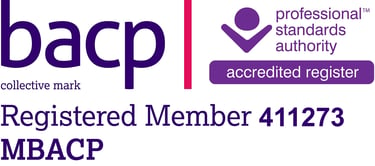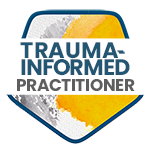Understanding the Impact of Trauma and the Role of Counselling in Recovery
2/17/20252 min read


Experiencing trauma can be significantly life-altering, often leading to pervasive feelings of distress, confusion, and vulnerability. Individuals may describe their experiences as a sudden, overwhelming sense of fear or helplessness, which can linger long after the traumatic event has passed. Symptoms can include flashbacks, nightmares, heightened anxiety, and emotional numbness. The emotional landscape of someone who has faced trauma can feel like a turbulent sea—chaotic, unpredictable, and devoid of visible shorelines.
The Psychological Effects of Trauma
The psychological ramifications of trauma extend far beyond immediate emotional reactions. Individuals may find themselves grappling with issues such as depression, relationship difficulties, and challenges in daily functioning. Importantly, trauma can also alter one’s perception of safety, trust, and self-worth. This shift in mindset can lead to withdrawal from social interactions and an overall sense of isolation. Recognising these feelings is the first step toward healing, as it validates the individual's experience and opens the door to seeking help.
How Counselling Can Facilitate Healing
Counselling provides a supportive environment where individuals can explore the effects of trauma in a safe and controlled manner. Trained professionals utilise various therapeutic techniques tailored to the individual's unique experiences and needs. For example, trauma-focused therapy allows individuals to process their experiences at their own pace.
Moreover, counselling fosters the development of coping strategies that equip individuals to manage their symptoms more effectively. By providing tools to deal with emotional dysregulation and teaching relaxation techniques, counselling not only helps mitigate the immediate effects of trauma but also encourages long-term resilience.
Additionally, a vital component of counselling is the opportunity for individuals to share their narratives in a supportive setting. This act of storytelling can be cathartic, allowing for the release of pent-up emotions and offering validation of their experiences. As trust builds between the counsellor and the individual, a sense of empowerment can emerge, fostering hope and motivation for recovery.
Ultimately, while experiencing trauma may feel isolating and overwhelming, the healing journey can be navigated with the right support. Counselling plays an indispensable role in helping individuals reconnect with themselves, confront their experiences, and reclaim their lives. Importantly, reaching out for help is a courageous step towards understanding and healing, paving the way for a brighter future.
If you are ready to take the first step in your journey towards a brighter future with a trauma informed practitioner please get in touch.









